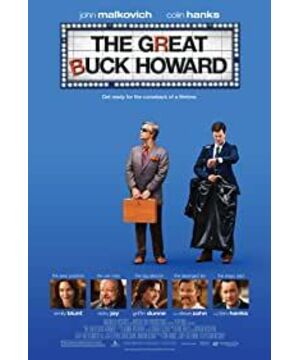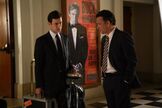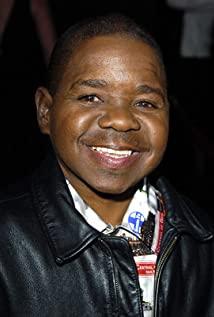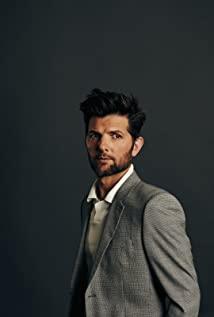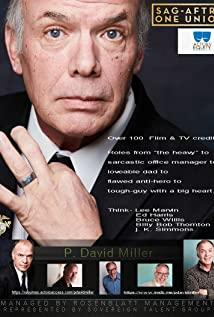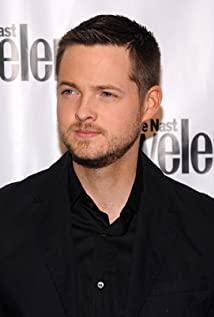The small production film "The Great Buck Howard" invested by Tom Hanks is a semi-documentary memoir. The great idea master Buck Howard in the film is played by the very charismatic John Malkovich. Noisy telepathic master "Magic Creskin". Film director and screenwriter Sean McGinly himself served as Kreskin's tour manager, and the film is taking a close-up look at the special life of a mysterious performer like Buck Howard from a tour manager's point of view. Buck's appearance in the entertainment industry was already a thing of the past, and he spent most of his time traveling and performing in rural towns in the central states of the United States. Most of the town's residents are middle-aged and elderly, and half of them are conservative farmers who are honest and responsible. When the situation is good, the small theater only has a 50% attendance rate. But in any case, Buck's first sentence is "I love this town," and sometimes "I love you people here." After the greeting, the thousand-year-old trick shows came on stage one after another, until the finale, the finale of the finale.
I couldn't help laughing from the first time Johnn Malkovich's Buck Howard shouted "I love this town" - it's a typical entertainer's fake Dakong, and then in one of the towns, Buck ruthlessly refused a warm-up request The theater manager was desperate to perform and sing on stage, and my stomach hurt from laughing. Such an unchanging little town, finally a celebrity visited, it is a grand event in China. Why didn't the old town beauties who wanted to perform every day accumulate but couldn't find a way to vent, why didn't they seize this rare opportunity and be stunned, ha.
In the past few years in the United States, I have been to many rural towns. In summer, on the endless plains of Kansas, after turning off the main road, there is a sparse village with cookie-cutter bungalows. The simple and honest old shopkeepers are sitting at the door of the wooden houses and basking in the sun to sell rough handicrafts. When I took refuge in the Rocky Mountains from Hurricane Katrina, there were seven or eight streets in a small town in the valley. A small shopping mall was all that was needed. To go to a movie theater, I had to drive more than 20 miles over mountains and mountains. Before we set off, I sent the car to change the oil. The owner saw that we had a Louisiana license. After a few conversations, everything was free. And the highway from Los Angeles, California to Las Vegas, Nevada, runs through a deserted village and town. In the bleak winter twilight, many abandoned bungalows on both sides of the road almost collapsed, rusted iron sheets and broken wooden nails. Very occasionally, a few passersby shrank their heads and passed by on the gray-white road. The wind rolled up scraps of paper and plastic bags. I could hardly believe that the two ends of this road leading to the distance would be the two most decadent and prosperous sins in the United States. City.
Seaside towns are different from inland ones. California's Coastal Highway No. 1 runs for more than 800 miles from north to south, and is dotted with countless characteristic tourist towns. My favorite is Point Arena, a hundred and thirty miles north of San Francisco, tucked away quietly at the junction of sea and mountain, the clean Highway 1 seems to lead straight to the deep blue Pacific Ocean, and the road is lined with white-painted fenced pastures , cattle and horses are leisurely on the grassy slope, and everything is not alarmed. Occasionally there are stables that are in disrepair. The iron roof is soaked in fog and rusted. In summer, it is accompanied by green fields or bales of yellow hay. When it is moved to the drawing board, it is a good painting with large color blocks. If you turn into the port along an uninhabited path, all the fishing boats with rusted and dirty decks are moored, the black reef beach and the strong fishy smell, and the green pines with the strong sea breeze, all tell a history of making a living that is not easy. . But more than 20 miles to the north, the Russian River is made of roses for perfume, the plastic boats in the river are colorful, and the estuary town of Mendocino is visited by tourists.
Looking at these "cornfield" villages and towns in the central plains where birds don't lay eggs in the movie, I suddenly remembered the scene of the Chinese New Year in Yuxia Township in Xi'an when I was a child. The gray sky, the gray-red brick house, the crackling firecrackers and the colorful confetti on the floor, the live fish with a terrifying expression in grandma's vegetable basket, and the thick white snow on the brown ridge. I also remembered the small village where I went with Dawei to my hometown when we got married. The courtyard is a typical small rural courtyard in Hebei, with flat-roofed brick houses, mud floors, kitchen and bedroom on both sides of the gate, and the interior is dim. Outside the house is a gourd and bitter gourd pergola, across from the earth toilet, and below is the pigsty. Before I left, I casually said that the bitter gourd was tender and good-looking, and grandfather, leaning on crutches and trembling, personally twisted the largest and most beautiful one for me. I ate a meal of big fish, big meat, heavy salt and heavy oil with uncles, aunts and uncles that I didn’t know. I got into the car with the beautiful bitter gourd and left the rural town that I longed for, feared and looked down upon. .
Troy Gable (Colin Hanks), the tour manager on "The Great Buck Howard," ultimately didn't find out exactly how Buck was thinking, saying he preferred to believe that Buck actually had psychic abilities. And the phrase "I love this town" that sounded false and empty at the beginning turned out to be sincere and touching at the end. Buck, the mysterious magician, master of mind, master of telepathy, of course his "greatness" will be washed away in the fast-paced entertainment industry tide, but in the minds of those small town people, those wearing Simple, cautious and humble, with a slightly fat body and a little dullness, he is a miracle in the eyes of a countryman who is conscientious in farming, picking and grazing. The great Buck Howard doesn't belong in Las Vegas, he doesn't belong in celebrity-filled TV interviews, he's the Buck of the small town, he's the Buck of the touring years, he's the Great Buck.
View more about The Great Buck Howard reviews


